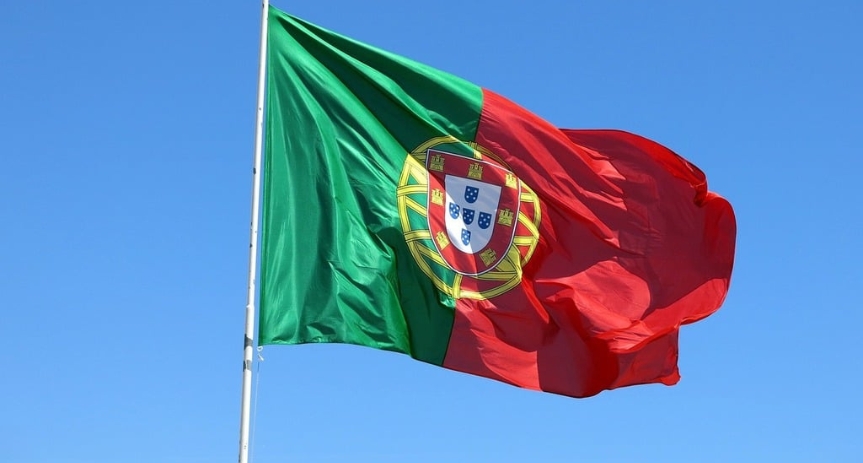The Forgotten Victims of Portuguese Communism

April 25, 2024, marked the 50th anniversary of the 1974 non-violent Carnation Revolution in Portugal: a joyful anniversary marking the end of the authoritarian “New State” dictatorship that had been in power for over 40 years. Not all Portuguese, however, remember this turning point in their nation’s history with such fondness. For some, the political transition was a catalyst for communist anarchist forces to change their lives forever.
The “New State” dictatorship was known for its most prominent leader António de Oliveira Salazar. Salazar, who ruled the country with a strong grip and employed control tactics like censorship and a secret police force, held power until 1968 and was succeeded by Marcelo Caetano. The Carnation Revolution, the culmination of a civil resistance campaign from the people and a military movement, resulted in the overthrow of the authoritarian regime and the democratization of Portugal. Though it was a time of political rebirth for Portugal, communist groups took advantage of the unstable circumstances across the peninsular country. The most violent of these communist groups was “FP-25 de Abril,” which terrorized the nation for years.
FP-25 were operational between 1980-1987. They felt threatened by the way that Portugal was transitioning into democracy, instead of into their preferred form of rule: communism. The effects of these sentiments were devastating for upstanding, entrepreneurial families in Portugal trying to keep their businesses afloat.
In 1982, Jorge’s Raposo de Magalhães Sr. was in his 30s and struggling to maintain one of the oldest glass factories his family co-owned in Marinha Grande, Portugal. It was becoming obsolete and not economically viable, and he considered selling his share. Ultimately, Mr. Raposo de Magalhães decided to take the risk and buy the factory from the rest of the partners to save the more than 2,000 local jobs it provided. The factory had overdue payments, and it was losing money but after less than two years of determination, reforms, and automatization, the factory became viable again, saving thousands of local jobs. The company eventually grew to such prominence that it began supplying glass products for large international companies including Ikea and Bloomingdales.
But these years of growth were also a nightmare for the family. Jorge was locked inside the factory several times by FP-25 members who infiltrated the factory union and led mass strikes. Since the ovens for glass making could not be turned off without causing structural damage, Jorge was forced to absorb the losses of wasted energy for his empty factory while the halt in production damaged relationships with the international stores that they were supplying glass goods to.
The Raposo de Magalhães family received death threats several times, which they thought to be simple threats until January 25, 1984. On this night, FP-25 de Abril members, the same people behind the threats, strikes, and intimidation of the family, opened fire on the family home with machine guns. “If anyone had been in the living room, they would have surely been killed,” said Jorge’s son, Jorge Raposo de Magalhães Jr., in an interview with VOC. The property’s guard saved the family by scaring the terrorists off, so they did not have time to throw their Molotov cocktails against the family’s wooden home and set it on fire. As a young boy, it was the first time Jorge Jr. saw real fear in his father’s face. But his mother, a strong and determined woman, encouraged Jorge and his siblings to have strength and discipline, and the next morning they went to school like every other day. As time went on and the family recovered from the shock, they became convinced that the terrorists’ intentions were to scare them and disrupt their successful business, but not to kill them. Years later, however, when confronted for their crimes at trial, one of the terrorists admitted that the goal was to kill the father of the family, Jorge Raposo de Magalhães. Many of the militants were ultimately jailed for their crimes.
In contemporary politics and historical memory in Portugal, few people remember FP-25. In an attempt not to tarnish the image of the Carnation Revolution, the crimes of the FP-25 have been overlooked in national memory, and in school it is not uncommon for students to be taught that there has not been a Portuguese terrorist group in recent history. However, the communist FP-25 not only tried to kill members of the Raposo de Magalhães family, but between 1980 and 1987 they organized 66 attacks using explosives and 91 assaults on banks, killing several innocent people including a 4-month-old baby. Displaying their communist tenets through their action, the group targeted factory owners and employees, salesmen, police officers, and members of the Portuguese Armed Forces. FP-25 apologized for the death of the baby, but not for the deaths of their other 17 victims, nor for the psychological torture they wrecked on many families across the country.
The Victims of Communism Memorial Foundation seeks to remember the more than 100 million victims of communism around the world and pursue the freedom of those still living under totalitarian regimes today. Through the preservation of historical memory, the victims of communism will not be forgotten.
Ana Leca, a political scientist and a former journalist, is a program officer in the Latin America Studies Program and a Development Associate at the Victims of Communism Memorial Foundation.

